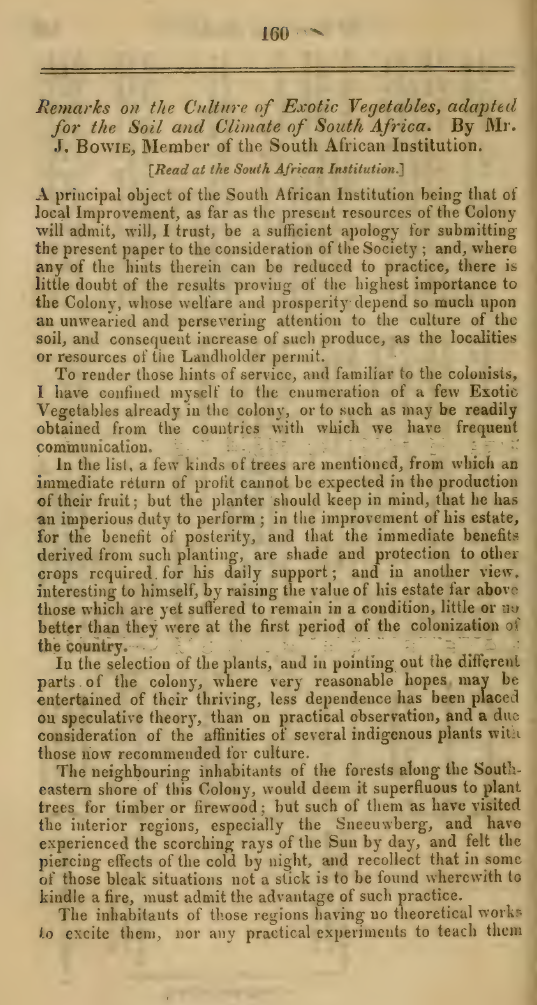Remarks on the culture of exotic vegetables, adapted for the soil and climate of South Africa
DOI:
https://doi.org/10.21504/saqj.12.2637Keywords:
Exotic plants, Agriculture -- Cape Colony, Afforestation, Sustainable farming, Drought mitigation, 19th-century botany, Horticultural experimentation, Plant propagation, Cape ColonyAbstract
In this paper, J. Bower presents a detailed examination of the cultivation of exotic vegetables and trees suitable for the South African climate and soil. Framed within the broader goal of promoting local improvement and agricultural self-sufficiency, the paper advocates for the experimental introduction of various non-native plant species already present or easily obtainable through colonial trade networks. Bower emphasises the importance of practical agricultural innovation over theoretical speculation, suggesting that forest planting could help mitigate the region’s chronic droughts and enhance soil fertility. The work catalogues a range of exotic plants—including furze, broom, elder, box, privet, several pine species, ash, alder, myrtle, bay, olive, and camphor tree—providing practical notes on propagation, ecological suitability, and economic or domestic value. Bower also urges the establishment of public experimental gardens to test and disseminate best practices, arguing that the prosperity of the colony depends on sustained agricultural experimentation and afforestation.
Downloads

